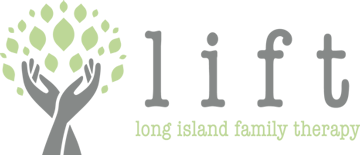Gratitude is a hot buzz word right now. Everywhere you go, you hear about being “in the moment” and being thankful for what you have. If you Google 'Gratitude', a million different definitions come up. I like the one from Psychology Today, which states “Gratitude is an emotion expressing appreciation for what one has—as opposed to, for example, a consumer-driven emphasis on what one wants.”
People who express gratitude, meaningfully and often, tend to experience more positive emotions, sleep better, are kinder, and have stronger immune systems. Gratitude does not just have to be shown after a big event, like a bar mitzvah or a promotion; it works best when integrated into our daily lives. Being thankful for every day, little things, helps us realized how blessed we are.
When forming a habit, we’re told to practice at the same time every day, over a significant period of time. When we think about practicing gratitude, we are taught to notice new little things. If you say “I am thankful for my spouse and children” all the time, you lose interest in gratitude. It just becomes a meaningless platitude. But if everyday we are able to find even one new things to be thankful for, we begin to look at our world differently.
Studies have shown there are many different, healthy, and effective ways of displaying gratitude: you can write in a journal. Logging your thoughts for yourself helps keep you on track and reminds you of all the many things around you you are thankful for.
You can also write a letter to those who have helped shape you into you. Letting people know how much they mean to you, what effect they have had on you, is immeasurable. You feel good saying something, and knowing that you are making someone happy. The other person is touched and honored, knowing that their comments, or actions, have made a difference, even to one person.
Giving is another way to practice gratitude. Winston Churchill once said “We make a living by what we get. We make a life by what we give.” When we give money, even a small amount, to someone else, we feel more pleasure than if we were to spend that amount on ourselves. When we donate, Oxytocin, the “feel good” hormone, is released in our brains, which helps to lower our stress and increases our sense of connection to others. This oxytocin boost will cause people to give more generously and feel a greater sense of empathy towards others. This in turns causes people to want to pay it forward, to keep the loop going.
A recent survey noted that people who donated to charity in the past month reported a greater sense of satisfaction. In fact, across 136 countries, donating to a charity that you believe in and are thankful for had a similar impact on happiness levels as doubling your household income.
A little Thank You goes a long way. Not just for you, but for all those you meet.

